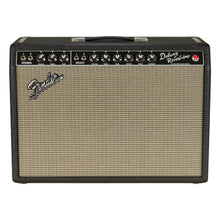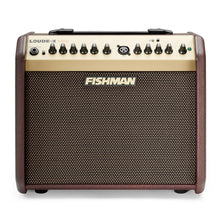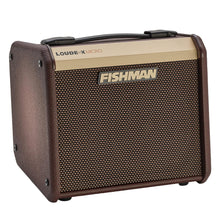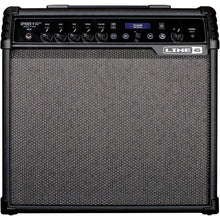Amplifiers
Amplifiers For Sale at The Music Zoo
Buy Amplifiers online now from The Music Zoo! We have a great selection of guitar gear available for purchase in our Amplifiers product collection. Awesome customer service and secure checkout are always included with your purchase. The products listed for sale in this collection are ready to ship immediately, with expedited delivery options available. If you're looking to make monthly payments, financing options for your Amplifiers order are available on checkout. Your satisfaction is always our top priority, so we offer a no hassle return option on every item we sell.
About Our Amplifiers Product Catalog
When you need to be heard over that drummer who plays too loud, The Music Zoo's collection of guitar, bass, and acoustic amplifiers will provide a piece that is up to the task! Whether you're looking to shatter windows with a full stack, shake the floor with low end, give your acoustic guitar a bit more presence, or grab a portable combo of any shape, size, or wattage, we're the destination with the best mix of the unique and the everyday must-haves. Buy your next amp online at The Music Zoo or visit our New York showroom to shop today - we're an authorized dealer for all your favorite amplifier brands, and our used inventory is packed to the brim.
Amplifier Types
Tube Amplifier
Tube guitar and bass amplifiers represent the original form of electric guitar amplifier circuits. These amps use vacuum tubes or "valves" in their circuits to provide both the coloration and the output character of the amp.
The "preamp" of a tube amp generally features a number of preamp "tubes" generally in the 12AX7 family (US) or ECC83 (UK) family. The "power amp" in American amp designs typically features 6L6 power tubes, while the British amp designs generally feature EL34 tubes. The differences in tone between the two can be very noticeable and these two types became common "subcategories" among all amplifier types. Tube amps can be more difficult to maintain, but many prefer the warmer and more natural sound of their overdrive.
Solid State Amplifier
Solid state guitar amps sometimes have an undeserved negative stigma attached to them. It is true that most cheaper amps are made with solid state circuitry, as it is affordable, and more reliable. But many great solid-state amps exist and have existed for many years. Many of the best bass guitar amps, such as Gallien Krueger, Acoustic Control Corp, Trace Elliot, Peavey, and Sunn, are built with solid state construction, as many prefer as clean a bass tone as possible, a feature that solid state amps can provide easily. The Roland JC-120 Jazz Chorus amp, is a solid state guitar amp that is highly regarded as both a clean amp and a pedal platform. Plus, with the advent of new Class D solid-state technology found in modern Orange, Darkglass, and Bergantino amps, these solid state amps can respond in a more tube-like manner to playing dynamics.
Modeling Amplifier
The first modeling amps were designed by Line 6. These modelers use digital technology to emulate the tones from the most well known tube amps, as well as a variety of effects. Other examples of modeling circuits include the Peavey TransTube preamp circuit and the Roland "Cube" series, both of which use analog modeling technology. Certain types of modeling technology focus less on modeling specific amps and more on modeling the response of a tube driven circuit. These early "student level" modeling amps have paved the way for complex and powerful modern amp modelers such as the aforementioned AxeFx and Kemper. Line 6 also builds a similar and professional quality amp modeler.
Bass Amplifier
Often times, bass and guitar amps can overlap. Some early amps that were designed for bass, most notable the Fender Bassman, ended up working better as guitar amps. Many '70s solid state amps, as well as Ampeg tube amps of the same era, are equally as beloved by guitar and bass players. Depending on the style of music though, some bass players require a cleaner and un-distorted sound and more headroom - qualities that many guitar amps don't provide, which is why dedicated bass amps are still important. Much of the sound of a bass rig also comes from the speaker cabinet. Typically bass cabinets use 10" or 15" speakers, as opposed to the normal 12" speaker size of electric guitar cabinets. These 15" and 10" speakers are more equipped to handle the low end produced by a bass amp.
Acoustic Amplifier
Acoustic guitars often need a bit of extra oomph - and amplifying them with a normal guitar amp can cause issues with feedback. Acoustic amps such as the Fishman Loudbox are designed with plenty of power, but also feature important acoustic-guitar friendly additions such as a notch filter for fighting feedback, built in "acoustic guitar" related effects such as reverb, echo, and chorus, XLR inputs for the singer songwriter, and a tweeter to aid in midrange projection.






























